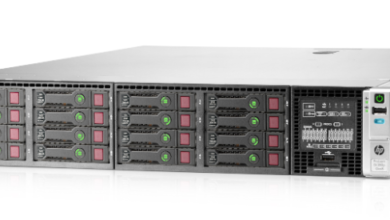
Why E-Waste Recycling Is a Growing Business Need
In today’s technology-driven world, businesses are constantly upgrading their devices, from computers and printers to servers and mobile phones. While this helps companies stay competitive, it also creates a growing challenge: electronic waste (e-waste). Improper disposal of outdated electronics is not only harmful to the environment but also poses serious security and compliance risks. That’s why more and more organizations are turning to professional e-waste recycling services—not just as an eco-friendly choice, but as a crucial business strategy.
The Rising Tide of E-Waste
According to the Global E-Waste Monitor, the world generates more than 50 million tons of e-waste each year, and the number continues to rise as technology advances at lightning speed. Businesses are a significant contributor, as offices routinely upgrade equipment to keep up with efficiency and productivity demands. Without a structured recycling plan, old electronics often end up in landfills, leaching harmful substances like lead, mercury, and cadmium into the environment.
This trend makes responsible e-waste recycling not just a sustainability issue, but a business imperative.
Protecting Your Business from Data Breaches
One often-overlooked reason for adopting e-waste recycling is data security. Old computers, hard drives, and servers may still contain sensitive business information, even after being erased. If disposed of improperly, this data can fall into the wrong hands, leading to financial losses, reputation damage, and potential legal consequences.
Professional e-waste recycling companies often include data destruction services, ensuring that information is completely wiped or destroyed before the hardware is recycled. For industries dealing with compliance regulations—such as healthcare, finance, or legal—this step is non-negotiable.
Meeting Corporate Sustainability Goals
Sustainability is no longer a “nice-to-have.” Today’s consumers, investors, and stakeholders expect businesses to demonstrate environmental responsibility. Implementing an e-waste recycling program helps companies align with corporate social responsibility (CSR) goals while reducing their carbon footprint.
By recycling, valuable materials like copper, gold, and aluminum can be recovered and reused, reducing the demand for mining and conserving natural resources. Businesses that embrace this approach can position themselves as eco-conscious leaders in their industry.
Staying Compliant with Regulations
E-waste disposal is heavily regulated at the local, state, and federal levels. Businesses that fail to comply may face hefty fines or legal penalties. Partnering with a certified e-waste recycling company ensures proper handling and documentation, giving business owners peace of mind knowing they are following the law.
Cost Savings and Efficiency
While some companies may view e-waste recycling as an added expense, it can actually save money in the long run. Recycling reduces storage costs associated with stockpiling old devices and often provides opportunities to recover value from retired electronics. Additionally, it streamlines office operations by clearing out obsolete equipment that clutters workspaces.
Final Thoughts
E-waste recycling is no longer optional for businesses—it’s a necessity. From protecting sensitive data to meeting sustainability goals and staying compliant with regulations, the benefits go far beyond environmental impact. As technology continues to evolve, companies that make e-waste recycling a standard business practice will not only safeguard their operations but also build a stronger, more responsible brand for the future.
This post was written by Steven Elia Co-Founder and Recycling Director at eCycle Florida. eCycle Florida is a R2 Certified electronics recycling company in the state of Florida. Our processes and procedures are dedicated to the proper destruction and recycling of your electronics. eCycle Florida is your go-to for commercial e waste.



